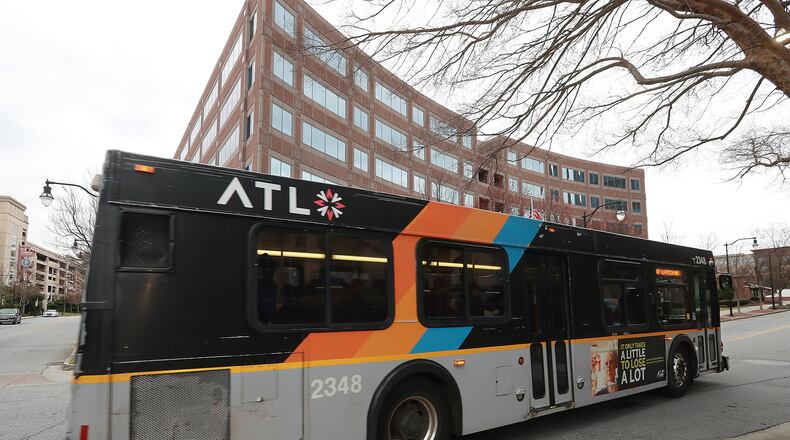Hosting Super Bowl LIII, greeting 104 million travelers annually at Hartsfield-Jackson airport, and a high-growth television and film industry show Atlanta can command a spotlight. But while the region knows how to make a great impression, it does so despite the same infrastructure challenges that other cities across America face. From surface transportation to water systems, America’s infrastructure is falling behind and now is the time for action.
Nationally, the seventh annual Infrastructure Week wraps up May 20. During Infrastructure Week, more than 500 affiliates across the country, including the Metro Atlanta Chamber and the Atlanta Department of Watershed Management, educate the public and policymakers about why investing in infrastructure is so important. Any city that wants to be economically competitive, to attract new businesses and support the existing ones, to improve residents’ quality of life, needs to invest heavily in infrastructure. Atlanta is no different.
Traffic, crowded airports, inconsistent public transportation, poor water quality, overwhelmed sewer systems, overburdened electric grids, and aging natural gas pipelines plague this country. That is why for seven years Infrastructure Week’s steering committee, which includes our organizations, plus the U.S. Chamber of Commerce, AFL-CIO, ASCE and more, have been ringing alarm bells in Washington, D.C. that it is time for a serious, fully funded, national infrastructure plan.
Of course, Americans know we are past due for critical infrastructure investments. Polling consistently shows that Americans overwhelmingly want the federal government to prioritize infrastructure over almost any other issue. When voting on local infrastructure referendums, Americans largely support them: 77 percent of local infrastructure ballot measures passed in 2018.
We see this can-do spirit extend into local transportation efforts. The close collaboration between the City of Atlanta, Georgia Tech, and private companies along the North Avenue Smart Corridor is a testing ground for how digital sensors can make traffic more efficient and safer. The Beltline continues to attract national attention for creating new economic value over older infrastructure assets. And even with a setback in Gwinnett County, MARTA’s multibillion-dollar capital program and expansion plans represent an affirmative agenda for the region’s essential transit provider.
The City of Atlanta and the Atlanta Department of Watershed Management is converting the former Bellwood Quarry into at 2.4 billion-gallon water reservoir to improve water reliability and increase emergency reserves. Currently, the city only has drinking water reserves of three to five days, but after the quarry project is finished, the reservoir will serve the city for 30 days or more.
Atlanta Department of Watershed is also exploring innovative ways to close the financing gap. The $14 million Environmental Impact Bond provides access to funding for innovative green infrastructure projects that will address critical flooding and water quality issues, reduce stormwater runoff, and enhance the quality of life of Westside neighborhoods that are in the Proctor Creek watershed.
Investing in infrastructure also can provide multiple benefits for the community, beyond upgrades to the infrastructure itself. Infrastructure investments equal infrastructure jobs, which pay better than other sectors and offer opportunities to folks with a range of educational backgrounds. For example, our research at the Brookings Institution finds infrastructure jobs can pay a 30 percent premium to those workers with no more than a high school diploma.
Atlanta leaders cannot do it alone. Big projects, those that can truly transform our future, deserve federal investment. It is how we built the interstate highway system, our inland waterways, our dams, and more. If we want to build for tomorrow, to give the next generation a country they can be proud of, we need that kind of federal leadership again.
Radhika Fox is CEO of the US Water Alliance. Adie Tomer is a fellow at the Brookings Institution’s Metropolitan Policy Program.
About the Author
Keep Reading
The Latest
Featured


